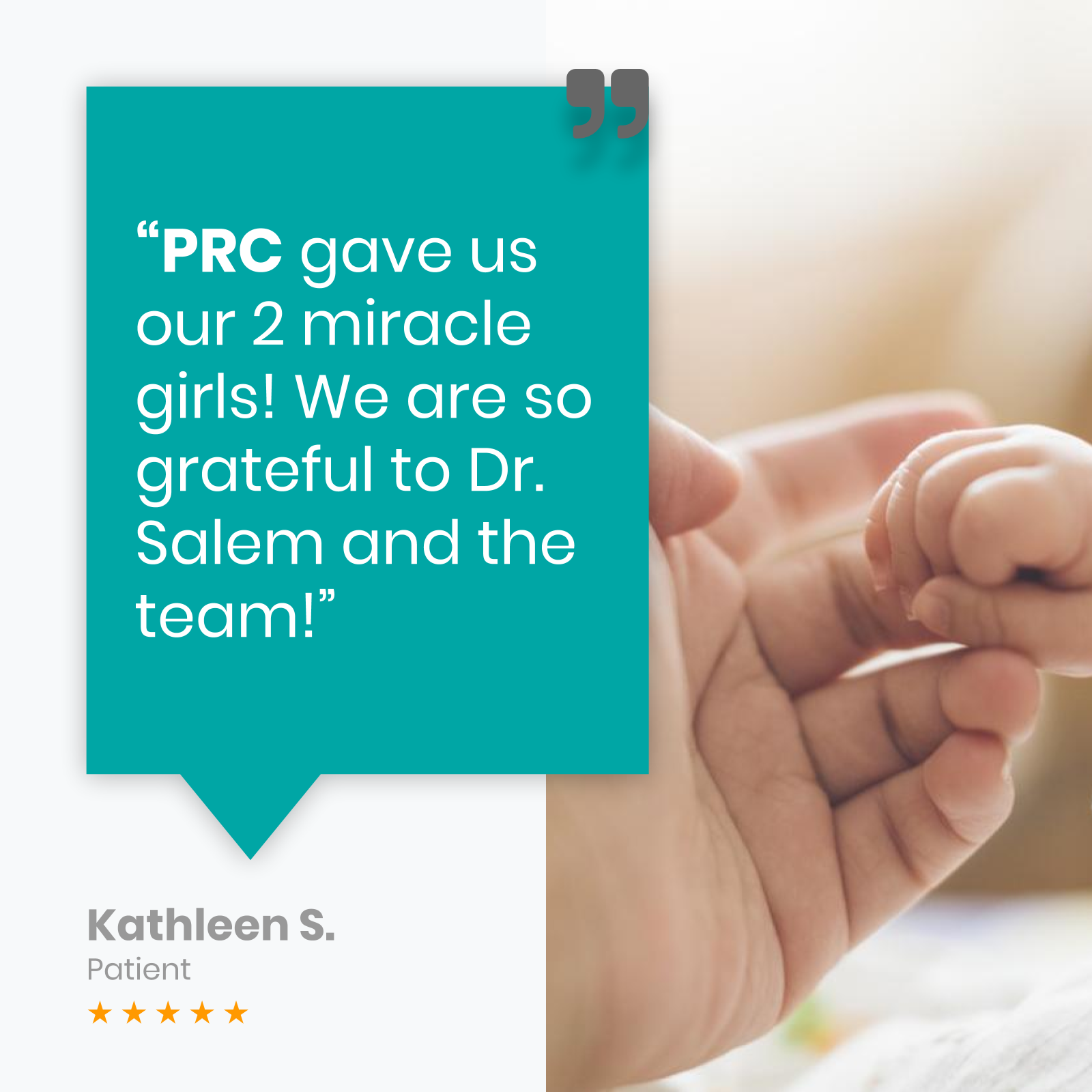At Pacific Reproductive Center, our team is dedicated to helping individuals and couples achieve successful pregnancies through sperm donor insemination.
Donor Insemination through intrauterine insemination (IUI) offers a safe, effective, and empowering path to parenthood, especially for those who are unable to conceive using a male partner’s sperm.
Donor insemination provides an opportunity to grow your family on your terms. Whether you’re navigating infertility, are a single parent by choice, or are part of a same-sex couple, this option allows you to fulfill your dream of having a child and building the family you’ve always imagined.
To learn more about IUI and donor insemination services, continue reading or contact our team now.
What is IUI and Donor Insemination?
Understanding IUI Treatment
IUI is a common and effective fertility treatment that involves placing sperm directly into the uterus during ovulation. This process helps increase the chances of fertilization by bringing sperm closer to the egg at the ideal time.
Donor Insemination (DI)
DI is used when donor sperm is needed to achieve pregnancy. The sperm is introduced into the uterus using the IUI process, offering a non-invasive and clinically supported option for conception.
How Does Donor Insemination Work?
The donor insemination process involves multiple steps to ensure safe, effective, and ethical treatment. From choosing a donor to completing the insemination, every part of the journey is supported by PRC’s experienced care team.
Sperm Donor Insemination Through Intrauterine Insemination (IUI)
Donor sperm is processed through a procedure called sperm washing to isolate healthy sperm and eliminate infectious agents. It is then inserted into the uterus using a thin catheter under ultrasound guidance during ovulation.
The Process of Donor Insemination
- Choose a sperm donor based on physical traits, medical history, or other personal criteria.
- Legally contract with a sperm bank or clinic.
- Schedule and complete the IUI procedure with the help of our fertility specialists.
When is Donor Insemination or IUI Used?
These treatments are often recommended when natural conception is not possible or when a partner’s sperm is unavailable or unsuitable.
Who Uses a Sperm Donor to Get Pregnant?
Using a sperm donor to get pregnant is an increasingly common option for people who require reproductive assistance.
There are several reasons why individuals may choose to use sperm donor insemination, including the following:
- Couples with Infertility Issues
Some couples or individuals may face infertility issues, making it difficult to conceive naturally. In these cases, a sperm donor can provide the necessary genetic material to conceive. - Single Women
Single women who are not in a relationship may choose to undergo artificial insemination by a donor to conceive. - Individuals or Couples With Medical Disorders
In some cases, individuals may need to use a sperm donor for medical reasons, such as a history of genetic disorders or diseases. The use of donor sperm allows them to reduce the risk of passing these genetic conditions to their child.
IUI with Partner’s Sperm
IUI can also be used with a partner’s sperm in cases of mild infertility or unexplained infertility.
IUI with Donor Sperm
This option is recommended when a male partner’s sperm is unavailable or unsuitable for conception.
Situations Where DI is Preferred
- Severe male infertility
- Medical or genetic concerns
- No male partner present
How Are Sperm Donors Screened?
Safety and transparency are key when selecting a sperm donor. All sperm donors undergo rigorous screening to ensure they are healthy and genetically qualified to donate.
All sperm donors are extensively screened for infectious diseases and genetic disorders, including:
- HIV
- Hepatitis B & C
- Syphilis
- Gonorrhea
- Chlamydia
- Cystic fibrosis
- Tay-Sachs disease
- Sickle cell anemia
This screening is done in PRC’s on-site lab to ensure the highest safety standards.
Success Rates for Donor Insemination and IUI
Success rates can vary depending on factors such as age, overall health, and whether fertility medications are used. Understanding your likelihood of success can help set expectations.
Success Rates for IUI
Success rates for IUI vary based on age, health, and whether fertility medications are used. For healthy women under 35, success rates can reach 10–20% per cycle.
Success Rates for Donor Insemination
When donor sperm is used in combination with IUI, cumulative success rates can reach up to 80% over multiple cycles, especially in younger individuals without fertility challenges.
How Does IUI Work?
The IUI process is relatively simple and is performed in-office. Here’s a breakdown of what patients can expect at each stage of the treatment.
Fertility Medications
Medications may be prescribed to stimulate ovulation and increase the chances of conception.
Monitoring
Ovulation is monitored via ultrasound and bloodwork to determine the ideal time for insemination.
Sperm Collection and Processing
Sperm is collected and processed through sperm washing to concentrate healthy, motile sperm.
Insemination Procedure
The prepared sperm is inserted directly into the uterus using a thin catheter, a painless, in-office procedure performed around ovulation.
IUI and Donor Insemination Cycle Timelines
Timing is essential for IUI and donor insemination. Understanding what happens each week of your cycle can help you plan and feel more comfortable during treatment.
Typical Cycle Timeline for IUI
- Days 1–3: Baseline testing and medication start (if applicable)
- Days 10–14: Monitoring and ovulation trigger
- Days 12–16: Insemination performed
- Day 28+: Pregnancy test
Timing for Donor Insemination
Timing for DI is closely aligned with the IUI process and carefully scheduled around natural or induced ovulation.
Potential Side Effects and Considerations for IUI and Donor Insemination
While side effects are usually mild, it’s essential to be aware of how your body might respond to medications or procedures during fertility treatment.
IUI Side Effects
- Mild cramping
- Light spotting
- Temporary bloating or mood swings (from medications)
Donor Insemination Side Effects
Side effects are generally mild and similar to IUI side effects. Emotional considerations are also important, and PRC provides supportive counseling and resources as needed.
Cost of IUI and Donor Insemination
Understanding the costs associated with treatment can help you feel prepared and confident in your decisions. At PRC, we prioritize transparency and offer financial support.
The cost of IUI varies depending on medications, monitoring, and the number of cycles needed.
Additional costs may include:
- Donor sperm selection and procurement
- Coordination with sperm banks
- Legal or administrative fees
Our financial counselors will review your insurance benefits and payment options during your consultation.
Effective IUI Treatment in Southern California
If you’re searching for expert fertility care in California, Pacific Reproductive Center offers decades of experience, advanced technology, and a compassionate approach to reproductive health.
Why choose PRC for your IUI treatment?
- Expert fertility specialists
- In-house lab and advanced screening
- Inclusive, compassionate care
- Affordable packages and financial guidance
Ready to take the next step? Contact us or call 866-870-0766 to schedule your consultation. Learn more about our fertility treatments or meet the team behind your care now.
Treatments
Pacific Reproductive Center has been successfully aiding conception for over two decades. We optimize the conditions of fertility treatment to give every potential parent the greatest chance of successful childbirth.
Resources
We ensure that every patient fully understands their medical condition and treatment options available to them. We understand each patient is unique so we help guide you through the best option to support your own fertility journey.
Looking for the Best Fertility Clinic in Southern California?
Pacific Reproductive Center has four convenient locations throughout Southern California, making it easy for patients to receive quality care close to home. Each IVF fertility center has an on-site lab, next-generation services, and state-of-the-art equipment.
Whether in Glendale, Torrance, Irvine, or Corona, our world-class fertility doctors can help you build the family you’ve always wanted.
3720 Lomita Blvd, Suite 200 Torrance, CA 90505
116 E. Broadway, Suite 300 Glendale, CA 91205
10 Post Irvine, CA 92618
381 Corporate Terrace Corona, CA 92879




